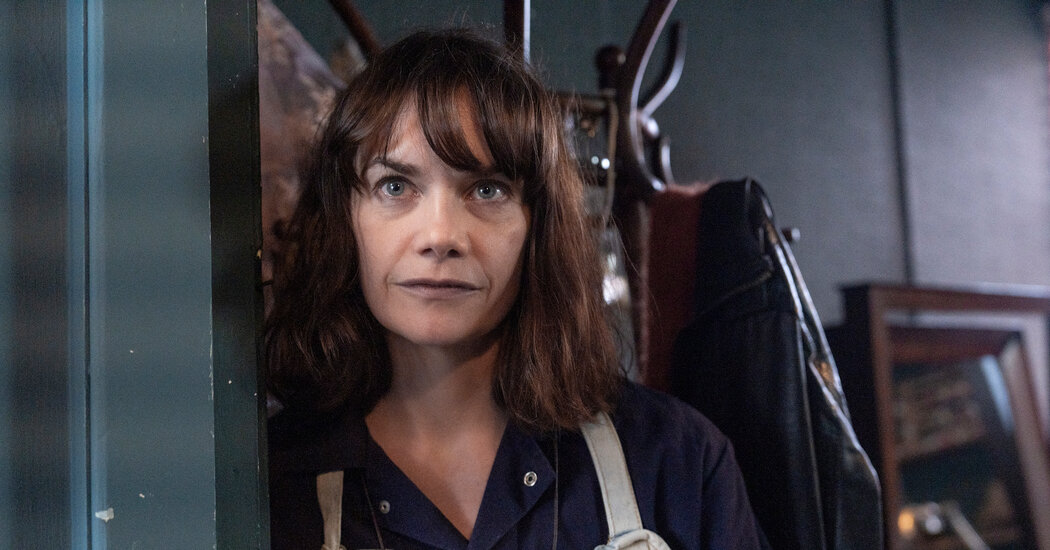Then there’s the much more entertaining murder mystery, in which one or two people have been killed, or perhaps none. A priest once posted to Kilkinure is found dead in his Dublin home, and suspicion falls on the protesting women. At about the same time, Lorna hits her head in a pub and wakes up at home, to find a dead woman propped against the wall of her sitting room. Lorna sees a lot of people who aren’t there, so we have questions about this plot strand, but there’s no doubt that what we see her do with the body is not an acceptable solution to the situation.
Murtaugh, greatly abetted by Wilson, balances the heaviness of his material with a humor and a lightness of spirit that make “The Woman in the Wall” a brisk, engaging production. A detective from Dublin (played by Daryl McCormack of “Good Luck to You, Leo Grande”) who knew the priest and has his own history with the mother and child homes comes to Kilkinure to big-foot the local cops (Simon Delaney and Cillian Lenaghan, both charming), and their sparring is consistently amusing. Lorna, meanwhile, goes on a dogged, low-level crime spree — some breaking and entering, some theft, a touch of arson — in the service of investigating her daughter’s fate, eventually joining forces with the Dublin detective when she gets better results than the police.
Murtaugh avoids dourness to the end, but in the last couple of episodes he falls into a different trap: the story suddenly slides into melodrama, and some of the solutions to the mysteries are a little hard to countenance. An American viewer could wonder if either the humorous edge or the melodramatic flourishes would have been present if the show had been made by Irish creators — Murtaugh, both of his directors, the majority of the writers and Wilson were all born in England, and Wilson’s Irish accent sounds like a work in progress.
Her performance is crackerjack straight through, though, whether she’s insouciantly hefting an ax or, in a particularly vivid example of Lorna’s nerve, putting a cigarette in her mouth and lighting it with a welding torch. Making it to the end will reward you with a piercing moment from Wilson that goes some way toward redeeming the latter episodes’ histrionics. And the closing credits offer a bonus: a few bars of a haunting, unreleased number, “The Magdalene Song,” that Sinead O’Connor recorded shortly before her death which dovetails with Wilson’s performance. “I’m everything a woman’s not supposed to be,” she sings. “That’s why they took my children off of me.”


